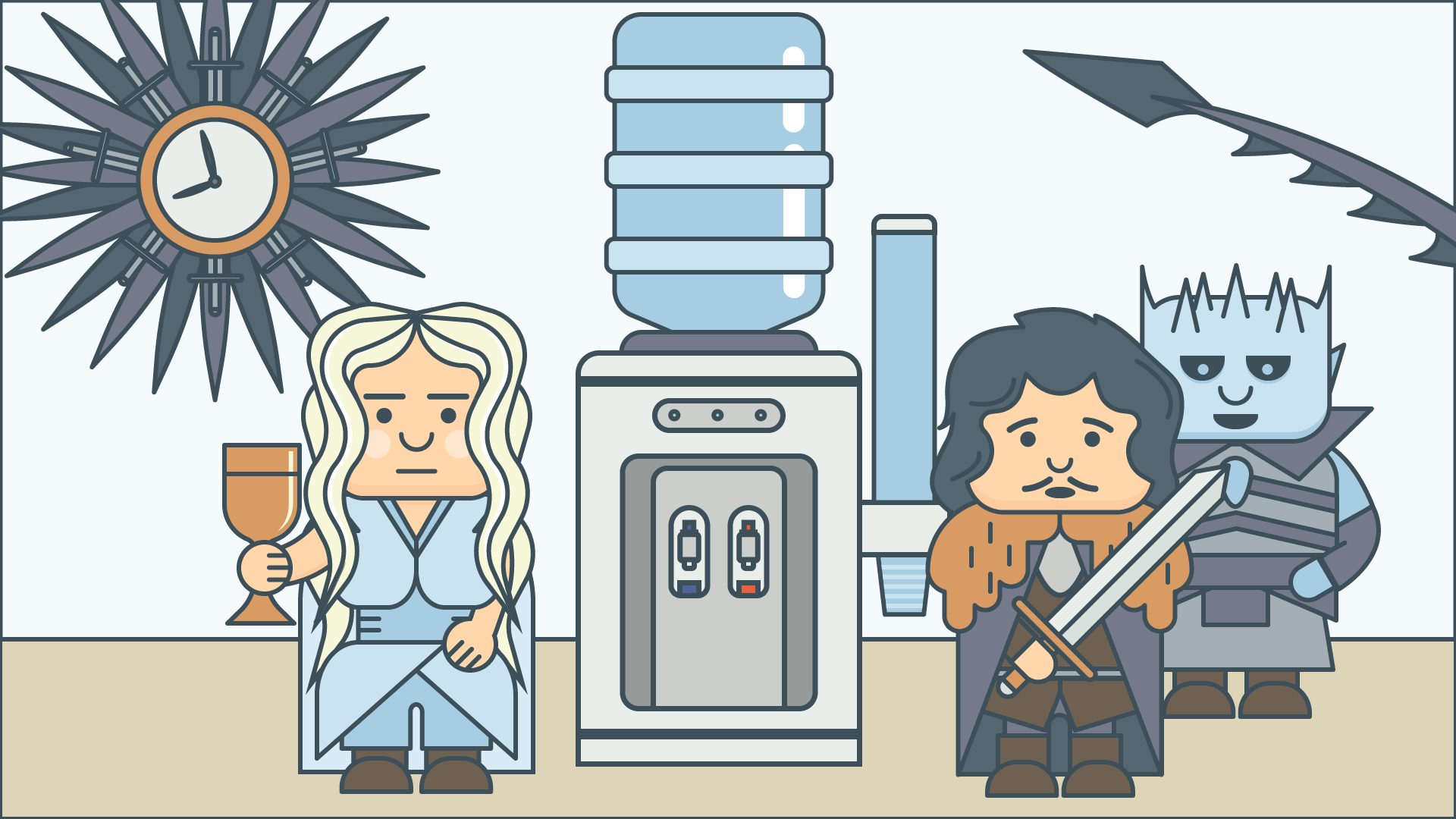- April 15, 2019
- By Carrie Handwerker
Winter is here. The much-anticipated eighth and final season of “Game of Thrones” premiered on HBO last night, returning after an 18-month hiatus for what could be record-smashing ratings.
Who ends up on the Iron Throne? Will the White Walkers make it to King’s Landing? How can this be over in just six more episodes?
Now you have to talk to someone about it. But should that someone be a co-worker?
Before you launch into water cooler talk, Trevor Foulk, assistant professor of management and organization in the Robert H. Smith School of Business, suggested asking yourself two questions: First, should you take work breaks to talk about TV shows, and second, should you talk about “Game of Thrones,” with its well-earned reputation for graphic sex and violence?
Foulk, who studies deviant workplace behaviors, workplace power dynamics, social perception and interpersonal influence behaviors, pointed to research that suggests small breaks can help you recover a little bit of energy and power you through the rest of your workday.
You might even boost your own productivity, as thinking through the latest plot twists or character assassinations in Westeros may help your brain engage in something of an “incubation” period, processing ideas at an unconscious level.
“The trick here is that this really only happens for things you are intrinsically motivated to work on, or problems you are legitimately motivated to solve,” he said.
While this can be instrumental for you, Foulk recommended considering whether the people you’re talking with are also on a strategically timed work break. If they’re not, you’re distracting them, and your gain might be their loss.
And if you’re taking a break to avoid your work at hand, that’s simply procrastinating, he says. So, get back to work. “You just need to press through.”
If you’re not procrastinating, but taking a productive break to chat with a co-worker about a TV show, Foulk said you might want to ask yourself whether it’s OK to talk about “Game of Thrones” (or a show that’s more benign).
To be sure, the award-winning drama covers some topics that we don’t casually discuss at work—rape, incest, murder—but that doesn’t mean it has to be off-limits. Foulk and Zhishuang Guan, a Maryland Smith Ph.D. student, have been studying how, in some contexts, talking about such things can help build social connections between co-workers. It sends a signal to your co-workers that you trust them enough to talk about topics that are less-than-appropriate at work with them. However, it can also be risky, because it could suggest that you are someone who violates workplace norms.
Ultimately, he said, the workday can be dark and full of terrors. Use care when choosing whether, how and with whom to discuss “Game of Thrones” at work. And take the equivalent of the Oath of the Night Watch and vow not to leak any spoilers.
Topics
Arts & Culture